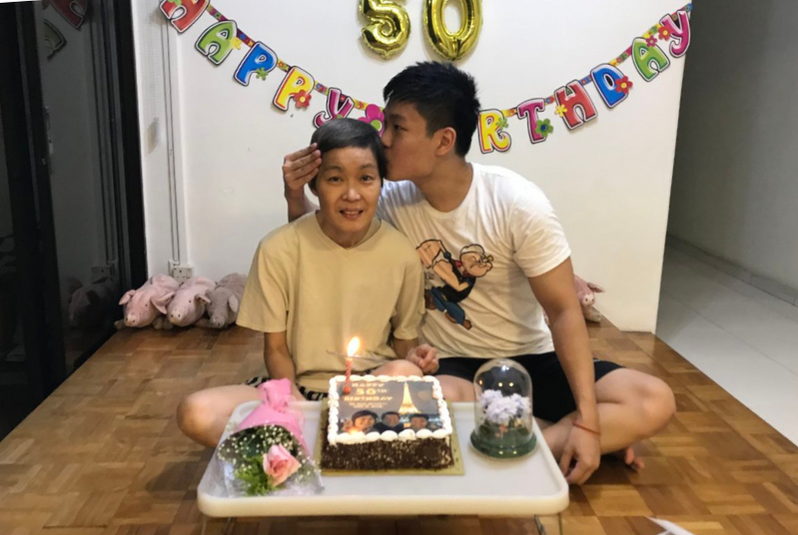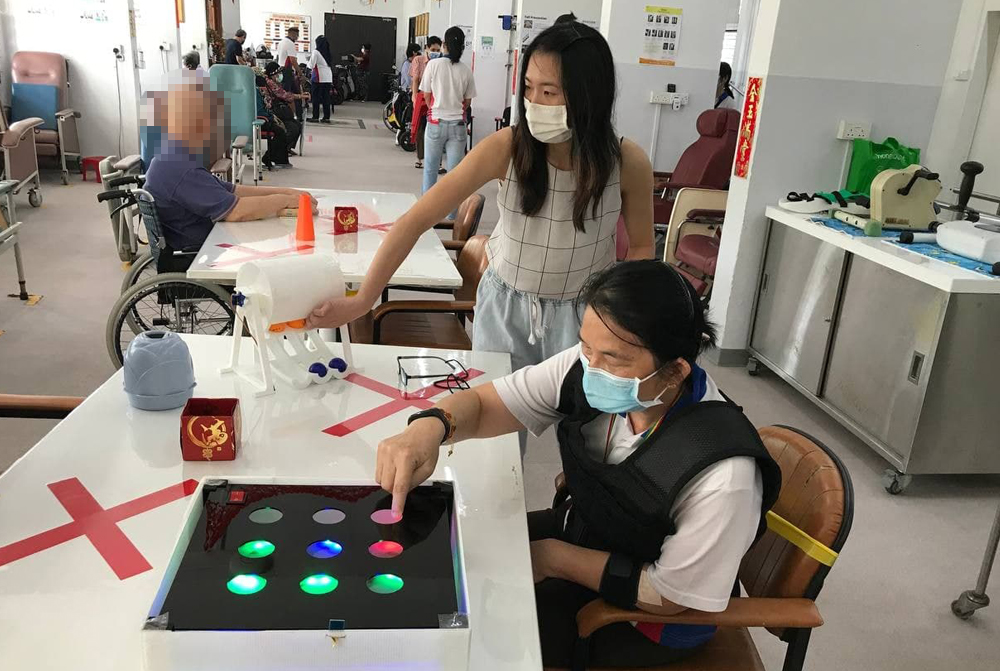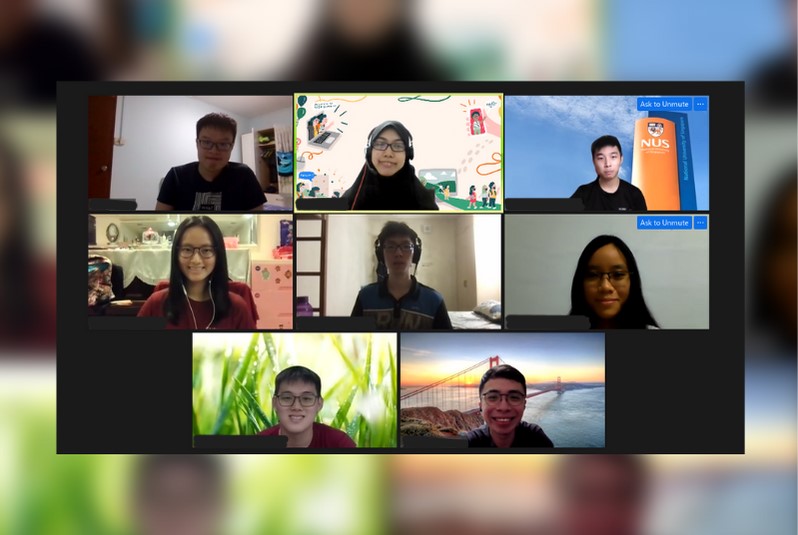Low Chen Ee, founder and co-lead of Project Empower, and Year 1 student from Yong Loo Lin School of Medicine used to be a caregiver. At 13 years old, he was a caregiver to his late mother who was diagnosed with terminal cancer.
As a caregiver, he was severely burned out and helpless. He said with a heavy heart: “There were many mistakes that I’ve made throughout the caregiving process that caused my mother unnecessary pain and suffering such as force-feeding her as because we had a fear that she would starve to death rather than die from her disease. If guidance and support were given to me, perhaps the situation would have been very different.”
“After my late mother passed on, I volunteered actively at HCA Hospice for several months and realised that there are many similar caregivers out there, suffering in silence. It made sense to me that I did not want others to have to go through all these sufferings and regrets that tormented me up till today,” Chen Ee replied.
Chen Ee said that if he was able to assist and empower caregivers, they would be able to better care for their loved ones and deal with their own burnout; making this the main aim of Project Empower.
Caregiver stress is real
On January 21, 2022, the death of 2 11-year-old boys who were found dead in Upper Bukit Timah canal signifies a tragic case of where caregiver burnout had perhaps pushed their father to the brink. It elucidates that perhaps there is more that needs to be done to care for the caregivers, even as they care for others.
Caregivers, in general, face immense mental and psychological stress from having to deal with patients’ welfare, cope with the ravages of the disease as well as the looming issue of death for those they care. It is time society looked to share some of their burdens and shed light on the issue to create more initiatives that can benefit caregivers.
Project Empower supports caregivers
Project Empower is a student-led programme registered with the NUS Medical Society and was founded in January 2022. Its vision is to raises awareness on the impact of caregiver burnout and advance society’s caregiving readiness.
Caregivers are a huge part of patients’ recovery whom which they spend an inordinate amount of time with. When caregivers’ welfare is looked after through initiatives under Project Empower, caregivers are better equipped to care for their patients and these has significant outcomes on their patients’ health. This is also important as there are an approximately 496000 caregivers in Singapore in 2021.
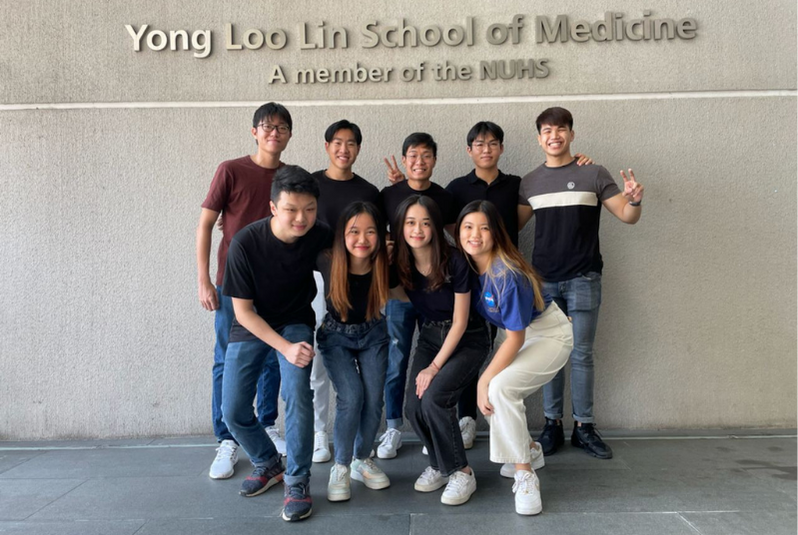
Bottom Row (From left): Isaac Sim Yong Jie, Charmaine Lee Yong Ching, Lim Li Qing, Tessa Tan Ying Zhen (Not in photo: Shruthi C Iyer)
Four initiatives, one aim
Chen Ee said: “Project Empower’s first initiative ‘Run to Empower’ will raise funds to meet the financial needs of all their caregiving initiatives. Through the virtual walkathon, participants can better understand the indispensable role caregivers play and the consequences of caregiver burnout."
Secondly, there will be ad hoc respite care sessions with a two-prong approach; Pre and Post Bereavement support. For example, post-bereavement support are services to be made available even after their loved ones have passed on, such as the provision in terms of funeral-related advice, fulfilling wishes and trauma cleaning. This makes Project Empower different from other caregiving services as volunteers will be there for the caregivers and their families from the start of their caregiving journey to the end.
Thirdly, a series of online videos and podcasts will be held to raise awareness of their cause and allow participants to pick up basic caregiving skill. Interviews with caregivers, patients, healthcare professionals and the public will be conducted.
Finally, research on effective solutions. Areas of interests include prevalence, epidemiological, impact on informal caregivers, euthanasia, mental health, and public health and policies and are fundamental especially as factual studies of caregiving in the Asian population are severely lacking. This helps Project Empower to come out with more effective solutions in order to fine tune and improve on existing operandi modus in order to help the caregivers.
How you can be involved
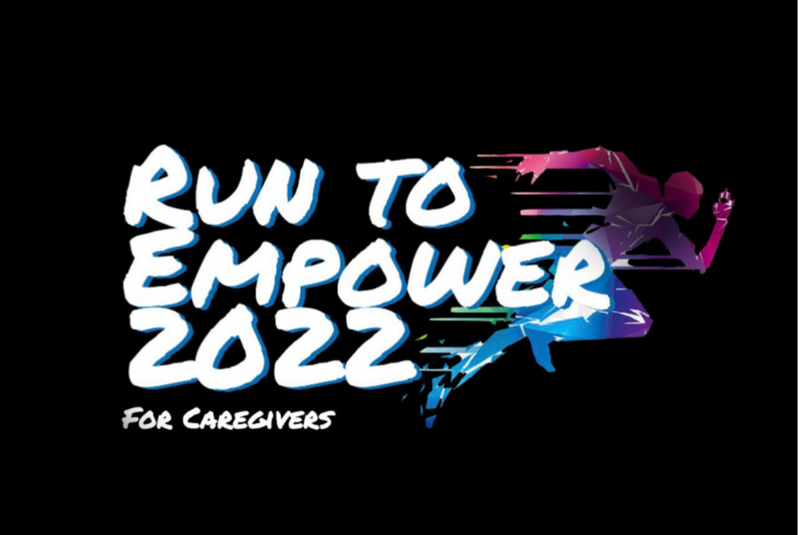
Run to Empower is an NUS-wide event and all NUS students are welcome to join this initiative as participants for awareness building. By supporting them, you can learn to be a better caregiver yourself now or into the inevitable future. A step in the right direction can empower the caregivers in our midst. This fundraising event runs throughout the month of May 2022. 100% of the profits goes directly into initiatives that benefits caregivers.
You can join Project Empower’s vision to empower current, future and informal caregivers; and advance society’s caregiving readiness.
Click on this link to join as a participant now.
Support Project Empower's cause by donating to their project here.
Visit them on telegram or Instagram to get the latest updates.
Share:
Contributor
Writer: Shanice Poh, Year 2, NUS Business School
Photos: Low Chen Ee, Year 1, Yong Loo Lin School of Medicine and Co-Lead, Project Empower


